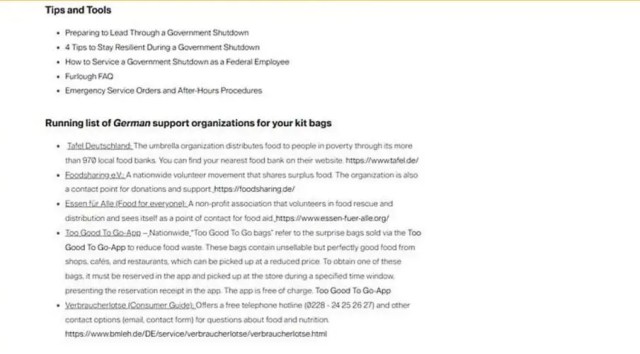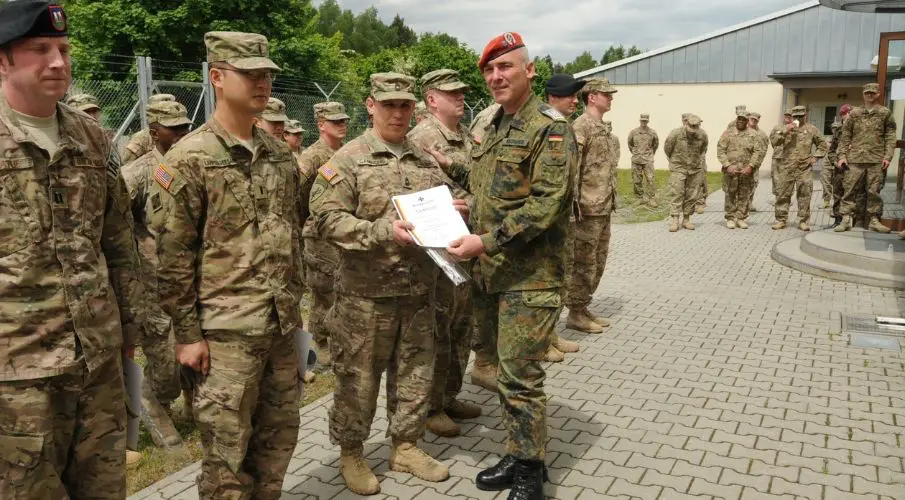It sounded like a grotesque twist amid the American budget dispute: “U.S. Army refers its soldiers in Germany to the food bank.” Several German and British media outlets, as well as MSN News, picked up the report. It fit too neatly into the image of chaos in Washington – and spread at lightning speed. But it was false – and stands as a prime example of the weakness of agency journalism: stories are copied before they are verified, speed replaces diligence. Private news collectors on social platforms seize on such content, amplify it millions of times – and spread errors before anyone even realizes they exist. In reality, the U.S. Army Garrison Bavaria had published an information page during the impending shutdown that listed local assistance options for Americans – including German food banks. The information, however, was not directed at American soldiers, but at German civilian employees and American civilian staff abroad who could face financial hardship in the event of a funding freeze.

The Army did not want to wait for Washington to act in this situation, but to help where Trump’s government had already abandoned its responsibility. It wanted to ensure that no one – neither civilian employees nor their families – would be left without support if paychecks stopped coming. It was a pragmatic, human approach that was falsely interpreted online as a sign of weakness.

In a statement, U.S. Army Europe and Africa clarified that no soldier had been instructed to use civilian aid services. The case illustrates how easily a headline can trigger a wave of disinformation – even in established newsrooms. A real document, taken out of context, combined with a false interpretation – and suddenly an act of compassion is turned into a supposed embarrassment. The end of the story: the Army removed its well-intentioned information – because in the social media age, whole packs descended on it. One can only say: good job for unresearched claims eagerly absorbed – and for all the civilians who now have no idea that a food bank even exists.

Germany, meanwhile, is not covering the salaries of U.S. soldiers but those of local civilian employees on American military bases who are affected by a potential gap in payments.
For independent journalism, this is more than just frustrating. Such false reports undermine trust, cloud the view of facts, and cost the very support that makes independent, fact-based investigative work possible in the first place. In an age when news spreads in seconds, the simplest rule remains the most important one:
Check once more before you share.
Investigative journalism requires courage, conviction – and your support.
Please also strengthen our journalistic fight against right-wing populism and human rights violations. We do not want to finance ourselves through a paywall so that everyone can read our research – regardless of income or origin. Thank you very much!


Und selbst wenn…, warum sollten amerikanische Soldaten und deren Familien, Angehörige, so sie denn hier in Not geraten, nicht auch deutsche Hilfsangebote in Anspruch nehmen dürfen?
absolut richtig, ich finde einfach die überschriften peinlich und dann teils in den artikel geändert, aber nur so, dass es gut für die verfasser ausschaut…
Es klang wirklich glaubhaft.
Denn letztlich müssen die Soldaten und ihre Familien auch etwas zu Essen haben.
Danke, dass Du das klargestellt hast.
danke, die überschriften waren häme, und es dann später in den artikeln zu korrigieren, war nun sehr peinlich ohne die überschriften zu ändern. die army hat das tatsächlich nur gut gemeint, wir haben mit vielen gesprochen darüber und die waren selber richtig schockiert, weilsie auch wegen der hilfe ärger aus dem pentagon bekamen